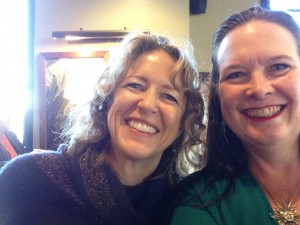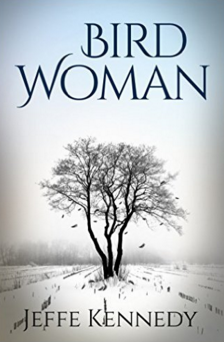
 Author: Jeffe Kennedy
Author: Jeffe Kennedy

Five Things I’d Tell My Newbie Writer Self

This is our neighborhood roadrunner. She comes by fairly frequently and checks things out. Not easy to get a good pic of her either! This isn’t the best shot I got (too much background, not *quite* in focus), but I love how it captures her purposeful stride.
Also, if you haven’t yet read THE MARK OF THE TALA, it’s on sale at Amazon for only $2.51. Great time to pick up a copy!
Jeffe’s #1 Tip for Being a Good Blogger
 I love seeing the mountain bluebirds come around this time of year. They’re skittish birds though, so it’s hard to get a good shot. I’ve been leaving the tripod up with telephoto lens trained on their usual perches. Even so, this is about the best pic I’ve gotten. Mostly they’re a whirl of bright blue and rose amidst the snowflakes.
I love seeing the mountain bluebirds come around this time of year. They’re skittish birds though, so it’s hard to get a good shot. I’ve been leaving the tripod up with telephoto lens trained on their usual perches. Even so, this is about the best pic I’ve gotten. Mostly they’re a whirl of bright blue and rose amidst the snowflakes.
I wrote a blog post early this week that was a bit meta – on how to write a bad blog post. Maybe that was a good example of a bad blog post because only one person commented!
At any rate, I’ve had a note for a while to share one of my blogging tricks. Not that I claim to be a great blogger or anything, but sometimes people ask me how I come up with topics. My secret? I keep a list. I have an ongoing list in Word of various topics, and I add to it as things occur to me. Sometimes I make notes in my phone or tablet and transfer them to the main list.
The most important thing I (try to) do, and this is really key for writers, is I note topics that apply to the book as I’m writing it. You will love your past self for doing this when it comes time to write those promo blog posts. If you’ve been there, you know. It can get really difficult to think up interesting things to say about your published book. Having this list of things you researched, what gave you images or ideas, problems you encountered, people that offered needed obscure information – and so forth.
All of these things will make great blog topics in the future, all that you would likely never remember months or a year later, depending on your publishing schedule.
Short and easy tip there, but one I’d had on my list for a while. 😀
Happy weekend, everyone!
Getting Book Reviews and Odious Comparisons
 A rare sight of Elephant Butte with snow, from the Christmas storm in New Mexico. We caught this on the drive home from Tucson, and now that I’ve turned in THE EDGE OF THE BLADE, I’m digging photos out of my camera and sharing. Yay!
A rare sight of Elephant Butte with snow, from the Christmas storm in New Mexico. We caught this on the drive home from Tucson, and now that I’ve turned in THE EDGE OF THE BLADE, I’m digging photos out of my camera and sharing. Yay!
The last few days, I’ve been in a range of conversations with writers at various stages of their careers.
One friend is not yet published. She had been discouraged by a string of rejections and has resolved to take her series out via self-publishing this year. (It’s a contemporary romance series that I think is excellent and will be excited to tell you all about when she’s ready.) We’ll also strategize another series for her to query with traditional publishing. For her, everything is about cracking that first barrier – getting her first book out there.
On one of my author loops, several extensively published authors bemoaned not being able to get book reviews. One commented that her latest self-published release got zero reviews. On another loop, more published authors complained of the same, asking for tips on getting more reviews.
Meanwhile another author friend yesterday celebrated the one-year anniversary of the publication of her book – and that it just hit 1,000 reviews on Amazon.
Me? I fall somewhere in the middle of all of this. I get a substantial number of reviews, from wonderful, enthusiastic readers – but I got nothing like 1,000.
So, what did we learn today, boys and girls?
There’s a saying that hearkens back to the fourteenth century, credited to John Fortesque, that’s been repeated by many, such as Lydgate, Shakespeare and Swift.
Comparisons are odious.
And no, that has nothing to do with odor. The word “odious” comes from the Latin odium for hatred. Something that is odious is hateful, disgusting or offensive.
In other words… DON’T DO IT.
Don’t make comparisons, people. And I’m speaking to myself, too, because when my darling friend announced hitting 1,000 Amazon reviews, the first thing I did was go look at my comparable book. How many? 54 Amazon reviews.
But hey, it’s better than zero reviews.
And it’s better than not having a book published yet.
Actually… it is what it is, right? Comparisons are odious because they’re meaningless. I reminded myself of that, shrugged it off, and closed the Amazon page.
We all do what we can do.
How to Know When to Give Up
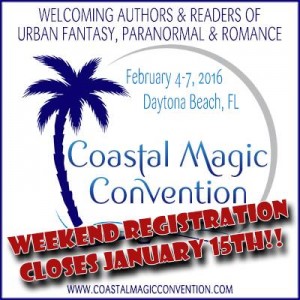
So, this week’s topic over at Word Whores is: It’s dead, Jim – how to know when a project isn’t working vs when its fixable.
I’m telling a couple of stories about knowing when to give up.
Writing in Books – Do You Do It?
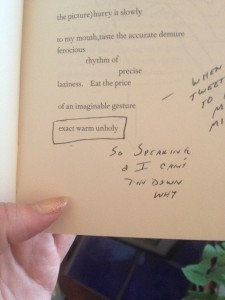 I’m over at the Contemporary Romance Cafe, giving some writing advice, and talking about why we do and don’t write in books we’re reading.
I’m over at the Contemporary Romance Cafe, giving some writing advice, and talking about why we do and don’t write in books we’re reading.
Jeffe’s Goals for 2016 (eep!)
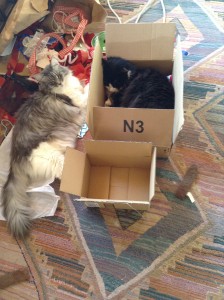 I’m over at Word Whores, confessing (ulp!) five major goals for 2016. At the end of the year, I’ll revisit them and see how I did. Go, Future Jeffe!
I’m over at Word Whores, confessing (ulp!) five major goals for 2016. At the end of the year, I’ll revisit them and see how I did. Go, Future Jeffe!
Sex as a Tool for Character Transformation
For those who might be interested, I’m teaching an online writing class … ah, um, next week! Yes, yes, I know my news and posts all month have been about how I’m all nose-to-the-grindstone on this novel. Which I am! But it should done by Monday, January 4, 2016, when the class starts. (Does that date sound like science fiction to anyone else? Could be just me, I get that. But still – 2016!)
Anyhoo, here’s the scoop, and it should be super fun! TLDR: the registration link is here.
Sex as a Tool for Character Transformation
Presented by Jeffe Kennedy
Dates: January 4-15, 2016
Deadline January 4, 2016
Fee: OIRW Member $10
Fee: Non-Member $15
Course Description:
Nothing is worse than the gratuitous sex scene, right? We’ve all been there-skimming the pages to get back to the “interesting” stuff that advances the plot and transforms the characters. But that’s not the sex scene’s fault. It’s the writer’s! Done well, a sex scene, from mild to steamy, should move the story forward and-most importantly-drive a change in the characters.
In this course, students will learn what makes a sex scene sing and what makes one sag. Working with the model of character transformation, the class will lead students through the concepts of sexual taboos and the mental, emotional and spiritual impacts of breaking them. Students will explore the concepts of intimacy and personal barriers and practice tools for using them to move their characters forward on every level. Writers will be able to submit short scenes to the instructor or the group for feedback.
Anticipated Releases of 2016!
A Chance to Vote!
 This is our bobcat visitor from yesterday. Gorgeous animal. Wish I’d gotten a clearer one of her face, but the best are of her prowling about.
This is our bobcat visitor from yesterday. Gorgeous animal. Wish I’d gotten a clearer one of her face, but the best are of her prowling about. 

 In other news, THE TALON OF THE HAWK is showing up on a bunch of Best of 2015 lists, like at RT Book Reviews, and Happy Tails and Trails (Best Cover, Blogger’s Choice and Top 10). At Grave Tells, the book is up for Best Fantasy Romance of 2015, so if you have that clicky-finger feeling, you can vote here.
In other news, THE TALON OF THE HAWK is showing up on a bunch of Best of 2015 lists, like at RT Book Reviews, and Happy Tails and Trails (Best Cover, Blogger’s Choice and Top 10). At Grave Tells, the book is up for Best Fantasy Romance of 2015, so if you have that clicky-finger feeling, you can vote here.
Hope the holiday season is treating you all well!
